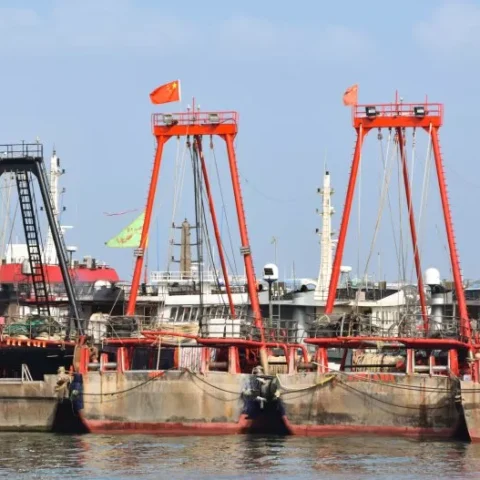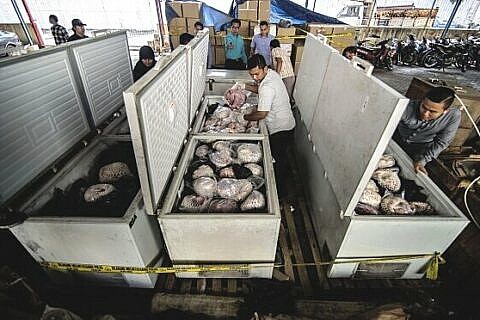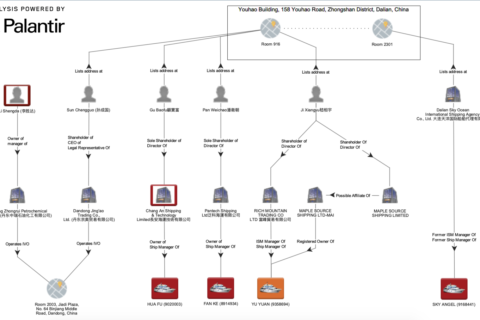Keeping the Lights On
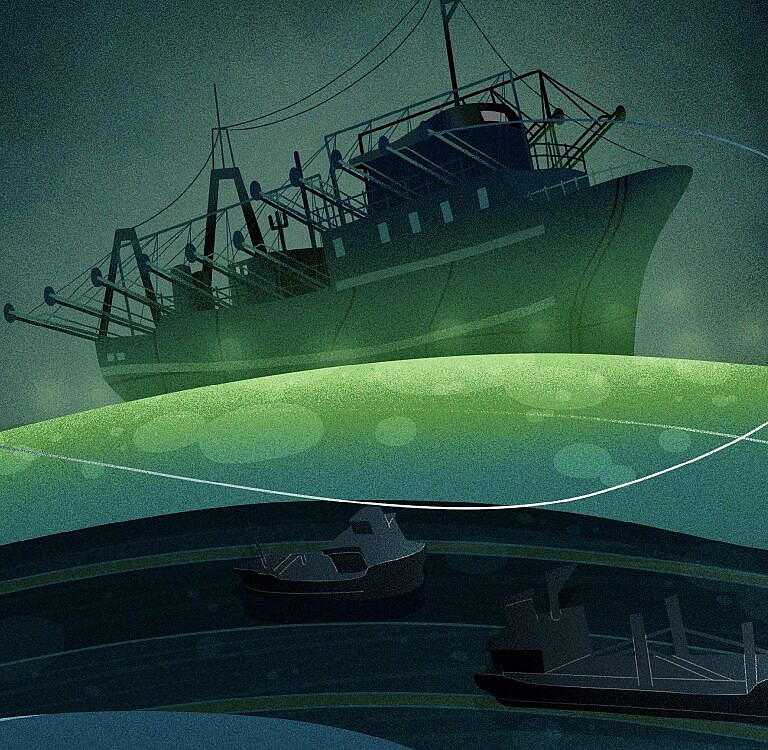
New C4ADS analysis charts an extensive network of onshore and offshore support systems that enable illicit distant-water squid fishing operations, helping malign actors evade and exploit enforcement from regulatory agencies targeting perpetrators of illegal, unreported, and unregulated (IUU) fishing.
Executive Summary #
Illegal, unreported, and unregulated (IUU) fishing and human rights abuses persist within the distant water squid fleet due to a network of enablers that sustain and obscure illicit activities. While these onshore and offshore support networks provide essential services, they can also allow vessels to evade enforcement and take advantage of under-resourced authorities or absent regional governance.
Offshore enablers extend the time vessels can stay at sea by reducing their need to enter port, keeping them out of reach of land-based authorities, and increasing strain on crew and squid stocks. Key offshore enablers of the distant water squid fleet include:
- Refrigerated Cargo Vessels (“Reefers”): Reefers transship goods and supplies with fishing vessels and receive their catch for transport to shore. Eighty-nine percent of high-seas transshipment events with the distant water squid fleet involve reefers ultimately controlled by Chinese beneficial owners, though they are primarily flagged to other nations. These reefers largely transport the harvest to Chinese ports that are not historically subject to Port State Measurement Agreement restrictions.
- Oil Tankers: Tankers provide fuel to fishing vessels at sea, reducing their need to enter foreign ports where they may undergo inspections. Nine tankers that operate under minimal regulatory oversight conduct over 80% of at-sea refueling events for the distant water squid fleet.
- Floating Offshore Fisheries Bases (“FOBs”): FOBs are retrofitted fishing vessels that provide the Chinese distant water squid fleet with medical care, disembark sick, injured, or deceased crewmembers, and may provide maritime security, production, and command services. The novel use of these vessels reduces oversight of onboard injury, illness, and death and enables vessels and their crew to remain at sea for longer durations, increasing the risk of forced labor.
Key onshore enablers of the distant water squid fleet include port-based actors as well as the global financial systems that underwrite risky activities, including:
- Port Agents: Port agents are the main interface between vessels and authorities on land. They coordinate onshore logistics and communicate vessel activities, crew information, and operational details that are essential for effective enforcement, but this also creates opportunities to obscure illicit activity.
- Insurance: Global insurance providers continue to cover high-risk vessels despite their connections to forced labor, IUU fishing, or sanctions violations, making it easier for illicit actors to operate with financial security. Insurance claims from vessels revealed details on crew injuries that would otherwise be obscured.
Descargar el informe en español #
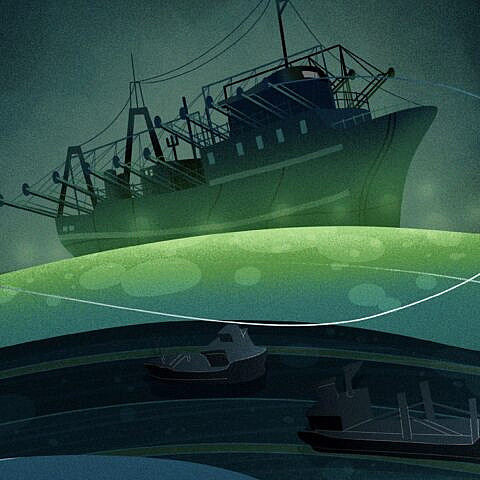
Manteniendo las luces encendidas
In the News #
